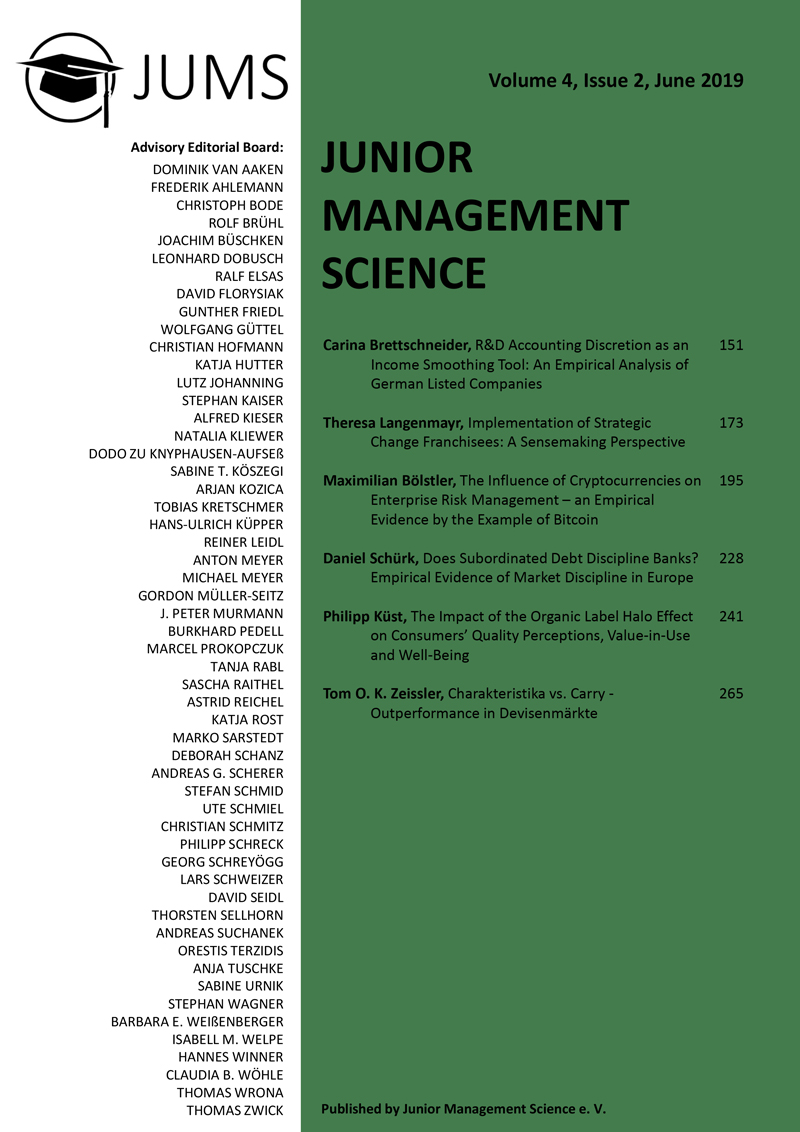Abstract
This thesis analyzes the influence of cryptocurrencies in the context of risk management by considering the emerging risk factors of Bitcoin as a payment method. By means of an empirical analysis through an online survey, the current operational dealing of incoming Bitcoin funds, the risk awareness of the potential threats, and the corresponding control activities implemented by companies accepting Bitcoin payments have been examined. The results reveal that the risks of this new technology-based payment method have not been extensively evaluated and that there exists a partially significant lack of know-how. Therefore, the risks are either not at all or improperly addressed by a majority of the organizations. However, the exchange rate risk and the cyber risk, which is a strongly linked to the administration of cryptocurrencies, represent the most significant related risk factors associated with cryptocurrencies in recent times. To ensure an appropriate operational dealing with cryptocurrencies, the author presents a risk control matrix based on the results of the analysis and discusses control activities to mitigate these emerging threats. Finally, a holistic Cryptocurrency IC Framework (following the COSO 2013 IC Framework) is presented, with the objective of effectively and efficiently developing and maintaining systems of internal control with regard to cryptocurrencies. Keywords: Blockchain; digital assets; Bitcoin; cryptocurrency; IC framework; enterprise risk management.
Dieses Werk steht unter der Lizenz Creative Commons Namensnennung 4.0 International.
Copyright (c) 2019 Junior Management Science e.V.

